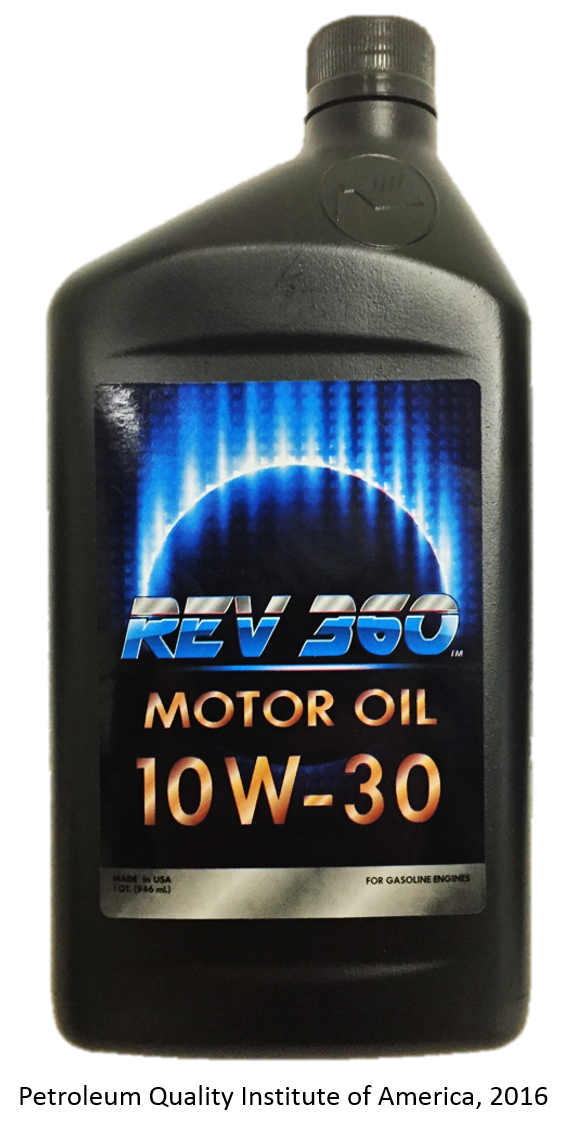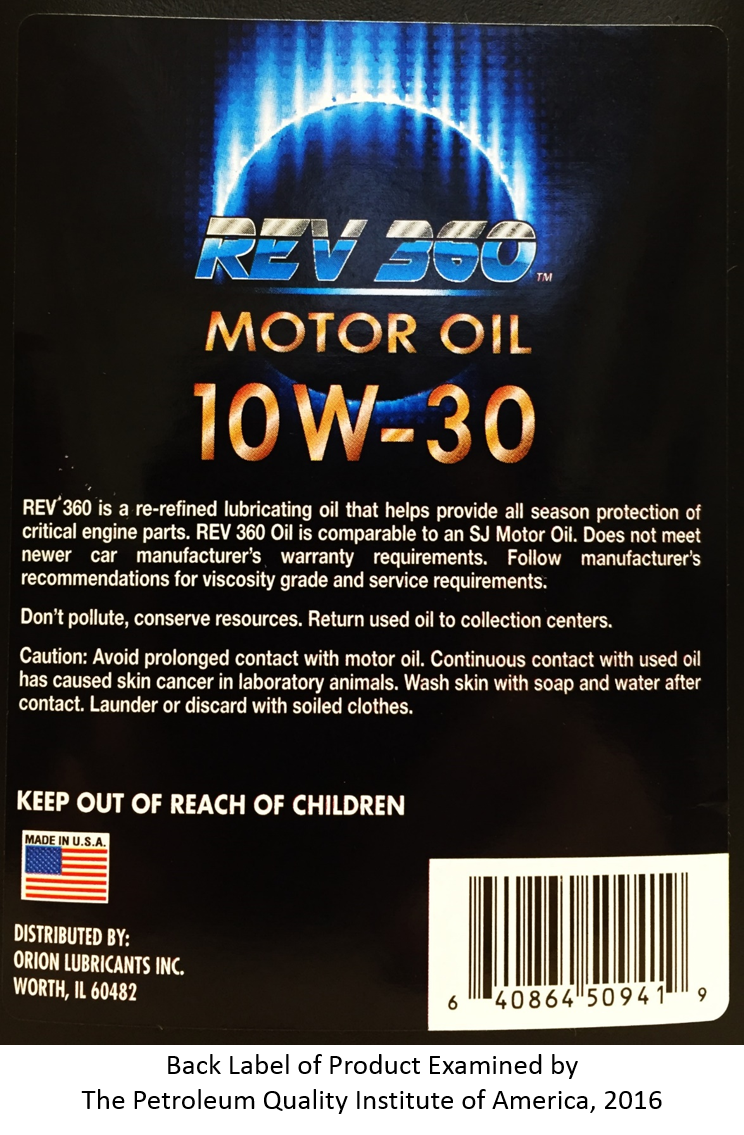

The Data Speak for Itself...

Click above for larger image

Click above for larger image
Corporate Office:
Orion Lubricants Inc.
Worth, IL 60482
Website(s):No Websites Found
The Petroleum Quality Institute of America (PQIA) is an independent resource for information and insights on the quality of lubricants in the marketplace. Our mission is to serve the consumer of lubricants by randomly sampling and independently testing lubricants taken from the field. Test results are posted along with the brand names on the PQIA website. This webpage provides an analysis on the brand detailed below.
The following are the test results for the sample examined.
Distributed by: Orion Lubricants Inc., Worth, IL
Purchased at: Bellwood, IL
Date of purchase: 2/17/2016
Website(s): No Websites Found


The labels on this sample refer to the product as a 10W-30 Motor Oil "FOR GASOLINE ENGINES" that "Helps provide all season protection of critical engine parts". In fact, this product does not meet any recognized definition of "Motor Oil" and is capable of causing damage to automobile engines!
The results of the tests conducted on this sample DO NOT meet the SAE J300 specifications for the SAE Viscosity Grade listed on the product label, and ARE NOT consistent with the referenced API Service Category. The Kinematic Viscosity @ 100°C is 74% lower than the minimum viscosity specification for this SAE grade, and the Noack Volatility is so high it caused an auto-shutdown of the testing instrument half way through the test. In addition, the organometallic additive levels in this sample indicate the product is NOT suitable for use in virtually all automobile engines currently on the road, and the metal analysis results indicate the product may be contaminated with abrasive material. Use of this product in automobile engines will likely cause serious harm to the engine.
 |
Physical Properties |  |
| Elemental Analysis |  |
|
| Labeling |  |
Note: Although laboratory tests alone cannot be used to establish if engine oil meets an API Service Category, they can be used to determine if it doesn't.
| PHYSICAL TESTS (click for test details) - a | Standard | REV 360 |
| TBN, mg KOH/g (ASTM D2896) | ||
| Viscosity @ 100ºC, cSt (ASTM D445) | 9.3 to 12.5 | |
| Viscosity @40ºC, cSt (ASTM D445) | 9.91 | |
| Viscosity Index (ASTM D2270) | 48 | |
| Viscosity @-25ºC mPa s (cP) (ASTM D5293) | 7,000 Max | |
| Volatility, mass % loss, 1 hr, @ 250ºC (ASTM D5800) | 15 Max -c | |
| ELEMENTAL ANALYSIS (click for test details) - a, b | ||
| Additives | ||
| Calcium | <1 | |
| Magnesium | <1 | |
| Phosphorus, ppm | 600 to 800 | |
| Zinc, ppm | <1 | |
| Molybdenum, ppm | <1 | |
| Barium, ppm | <1 | |
| Boron, ppm | <1 | |
| Silicon, ppm | ||
| Potassium, ppm | <5 | |
| Manganese, ppm | <1 | |
| Titanium, ppm | <1 | |
| Copper, ppm | <1 | |
| Sodium, ppm | <5 | |
| Vanadium, ppm | <1 | |
| Contaminants | ||
| Silver, ppm | <1 | |
| Aluminum, ppm | <1 | |
| Chromium, ppm | <1 | |
| Iron, ppm | <1 | |
| Nickel, ppm | <1 | |
| Lead, ppm | <1 | |
| Antimony, ppm | <1 | |
| Tin, ppm | <1 | |
|
||

